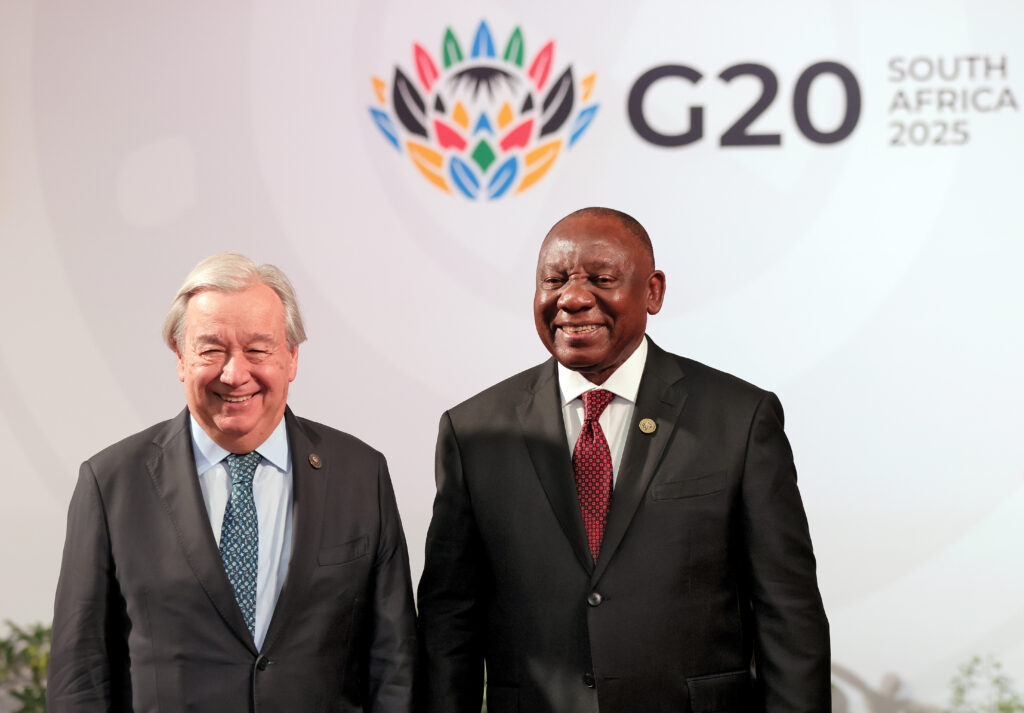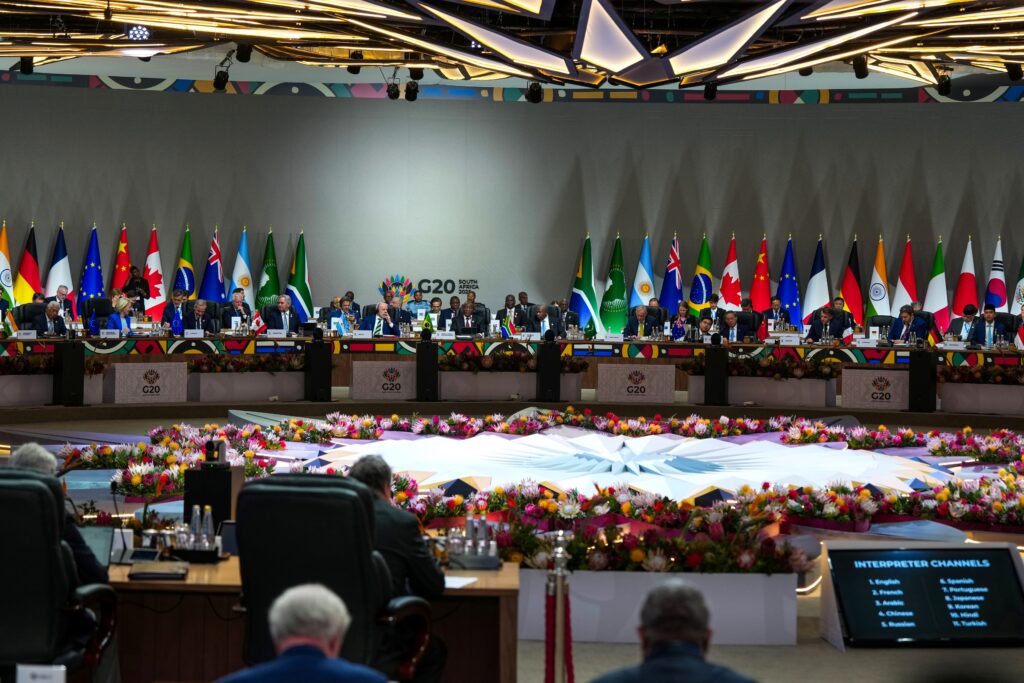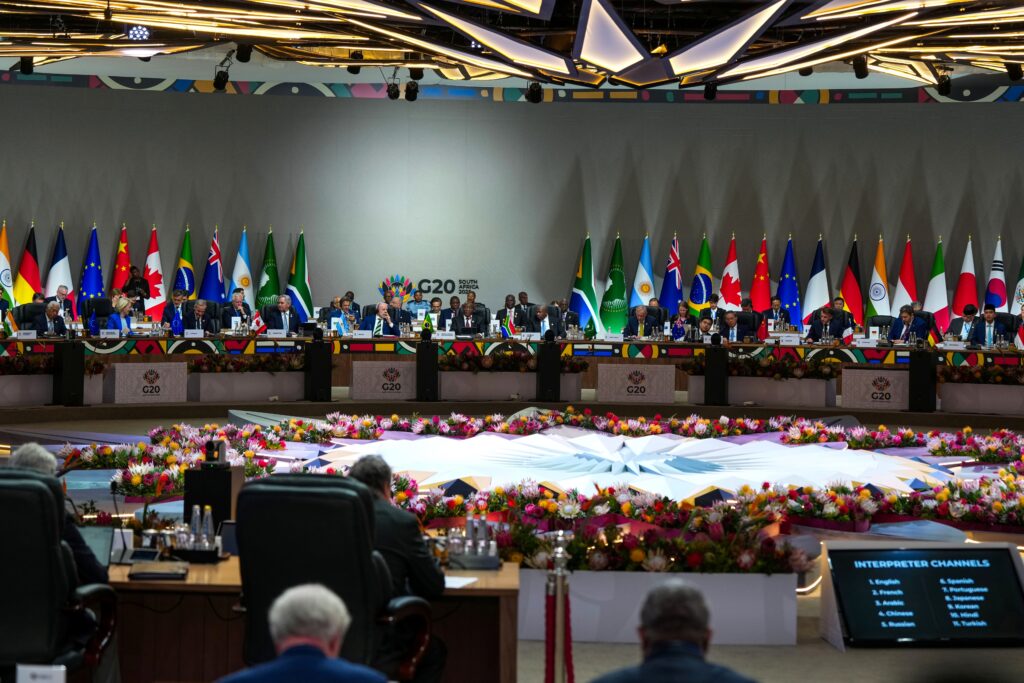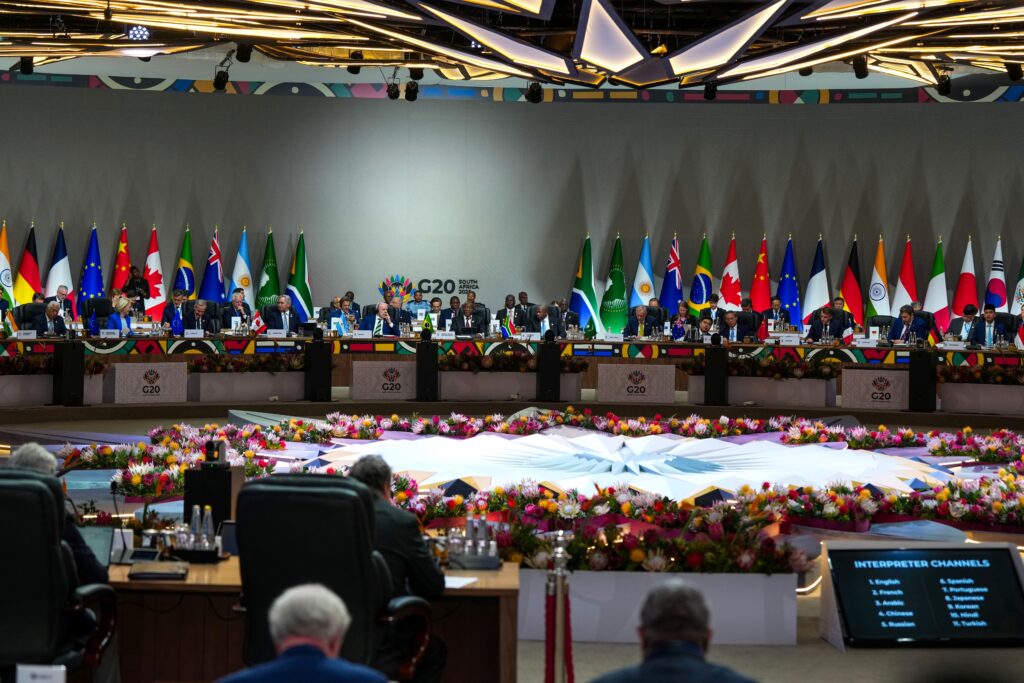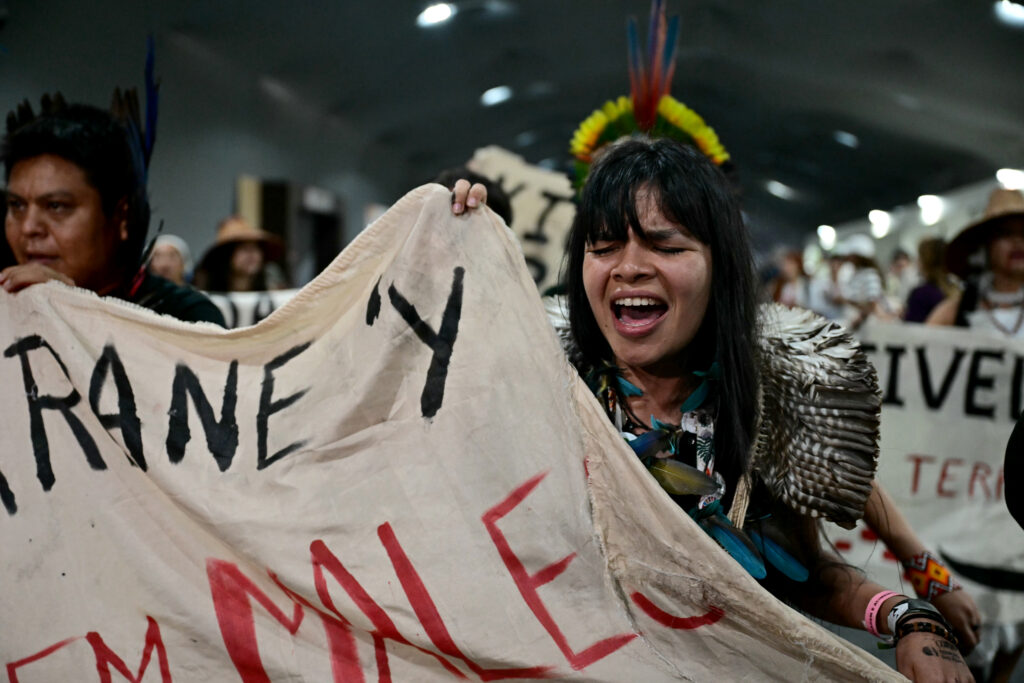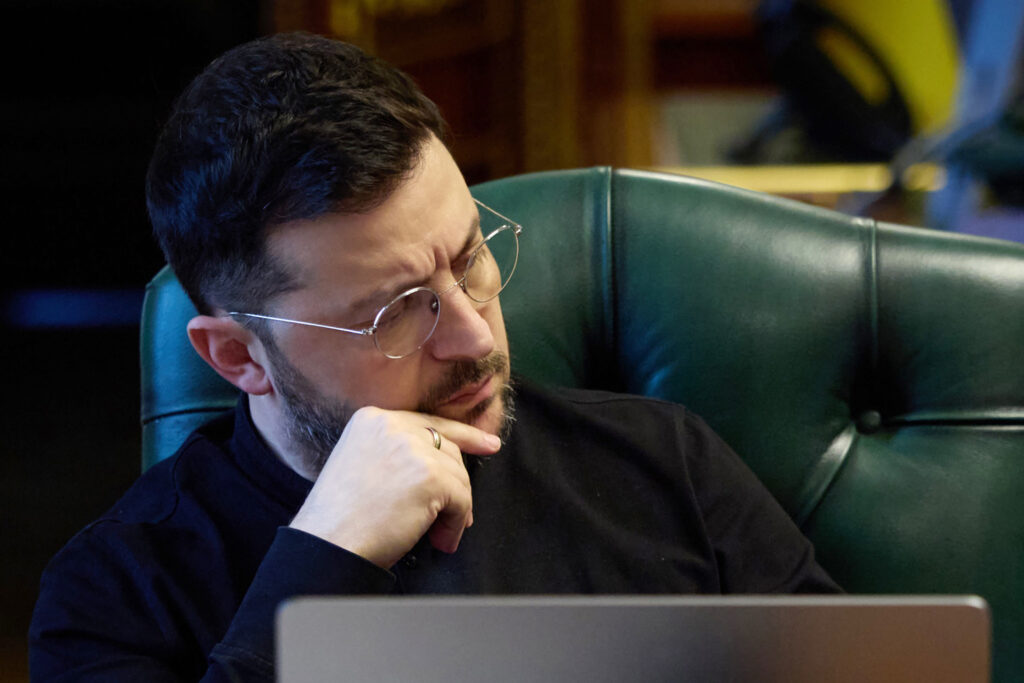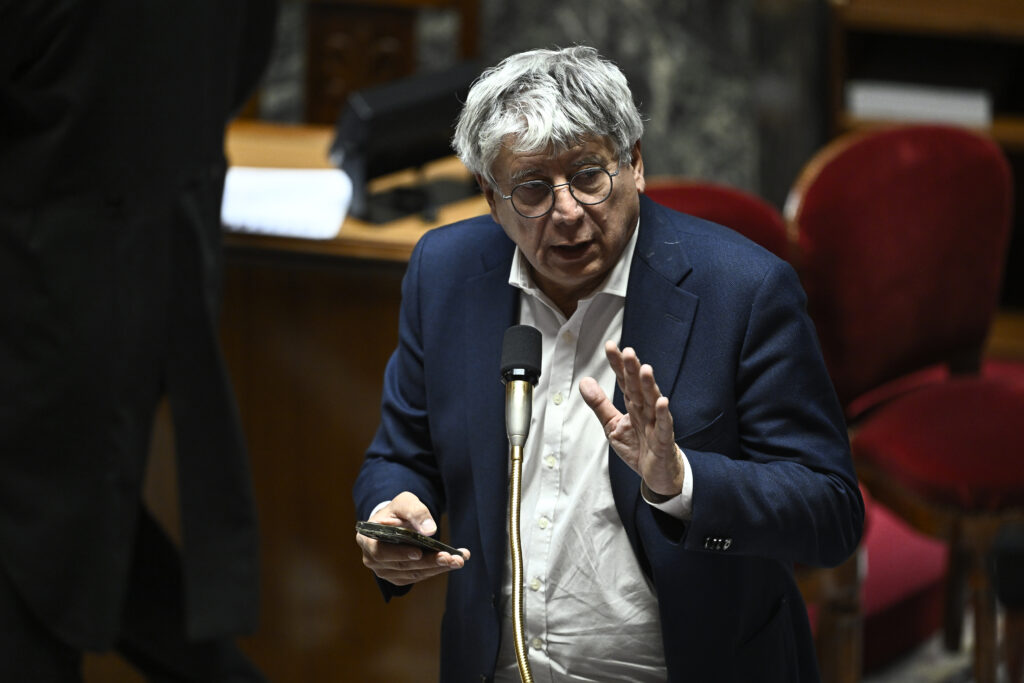L’ouverture du G20 en Afrique du Sud dominée par le plan américain pour l’Ukraine
Le plan américain pour l’Ukraine vient bousculer l’agenda du sommet des grandes économies du G20, qui s’est ouvert samedi à Johannesburg (Afrique du Sud) et où les Européens multiplient les consultations pour adopter une contre-proposition, selon des sources européennes.Le président américain Donald Trump boycotte le sommet, mais les dirigeants européens présents dans la capitale économique sud-africaine ont prévu de se réunir dans la journée pour discuter de son plan visant à mettre fin à plus de quatre ans d’invasion russe en Ukraine avec leurs homologues canadien, japonais et australien, selon un responsable européen. “Nous travaillons à faire du plan américain quelque chose de valable sur la base de nos échanges précédents”, a précisé une autre source européenne à l’AFP.Le chancelier allemand Friedrich Merz a déjà annoncé vendredi soir s’être “mis d’accord sur les prochaines étapes” avec le président américain lors d’un entretien téléphonique.- Déclaration adoptée -Le G20 regroupe 19 pays plus l’Union européenne et l’Union africaine, et représente 85% du PIB mondial et environ deux tiers de la population.C’est un symbole de “la valeur” du multilatéralisme pour résoudre les défis mondiaux, a mis en avant le président sud-africain Cyril Ramaphosa dans son discours d’ouverture.”Les défis auxquels nous sommes confrontés ne peuvent être résolus que par la coopération, la collaboration et les partenariats”, a-t-il affirmé. Le président Ramaphosa peut d’ores et déjà revendiquer une victoire pour ce premier G20 organisé en Afrique: une déclaration des dirigeants présents a été adoptée “par consensus” dès le début du sommet, a annoncé sur X un haut responsable du ministère des Affaires étrangères, Clayson Monyela.C’est “un important signal que le multilatéralisme peut arriver à des résultats, et le fait”, s’est félicité Cyril Ramaphosa.Le texte n’a pas été rendu public pour le moment.- Inégalités -Pour sa présidence du G20 cette année, Pretoria a affiché parmi ses priorités la création d’un panel international sur les inégalités économiques, à l’image du Giec pour le climat. L’allègement de la dette, les minerais de la transition énergétique, présents en abondance sur le continent africain, ou encore l’intelligence artificielle sont aussi au programme du sommet prévu jusqu’à dimanche.Les États-Unis s’étaient opposés à la diffusion d’un communiqué final du G20, invoquant leur absence à un sommet dont “les priorités vont à l’encontre” des vues politiques de Washington.Le gouvernement sud-africain est pris pour cible par Donald Trump depuis son retour à la Maison Blanche, notamment sur une prétendue persécution des Afrikaners, ces descendants des premiers colons européens. Le président américain a sorti ces derniers mois les États-Unis de plusieurs instances internationales. Il a notamment initié le second retrait américain de l’accord de Paris sur le climat et n’a envoyé aucune délégation officielle à la COP30 au Brésil.Les éventuelles déclarations au G20 sur le climat seront d’ailleurs examinées de près à l’heure où les négociations climatiques de la COP30 au Brésil achoppent sur la question d’une éventuelle feuille de route pour sortir des énergies fossiles. L’UE a même évoqué la perspective de partir “sans accord”.A l’issue du sommet dimanche, l’Afrique du Sud doit passer le relais de la présidence tournante du G20 aux États-Unis, lors d’une cérémonie où Washington pourrait se faire représenter par un diplomate en poste en Afrique du Sud.L’administration Trump a annoncé son intention de resserrer le G20 sur les questions de coopération économique.
